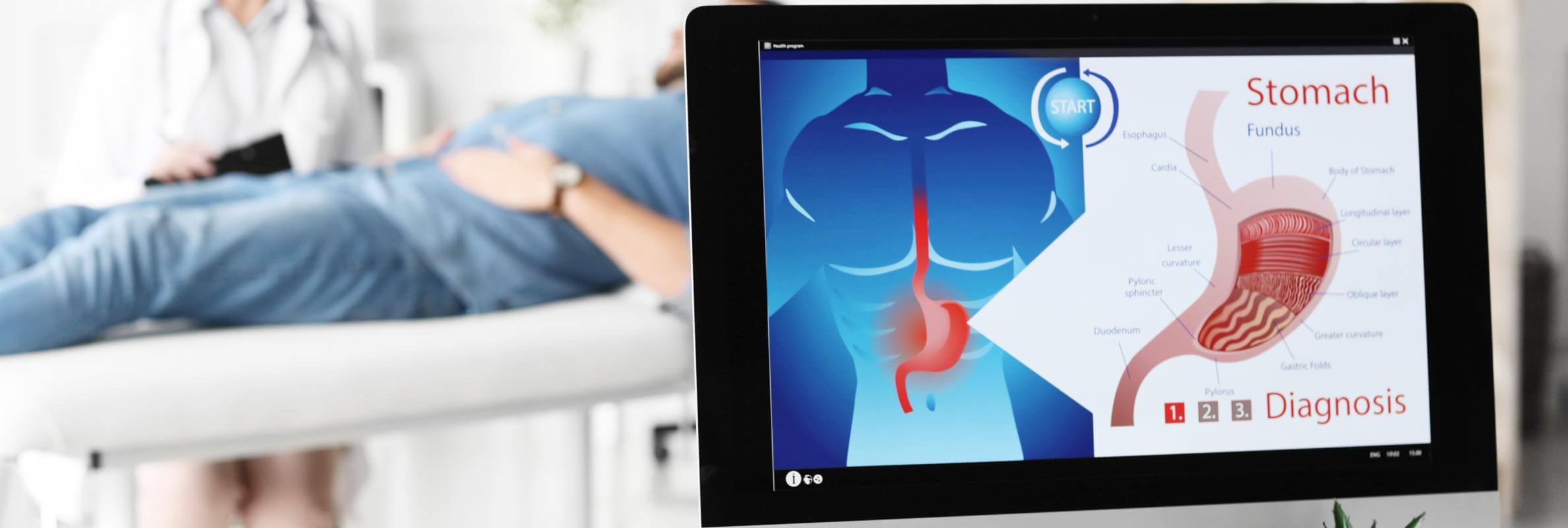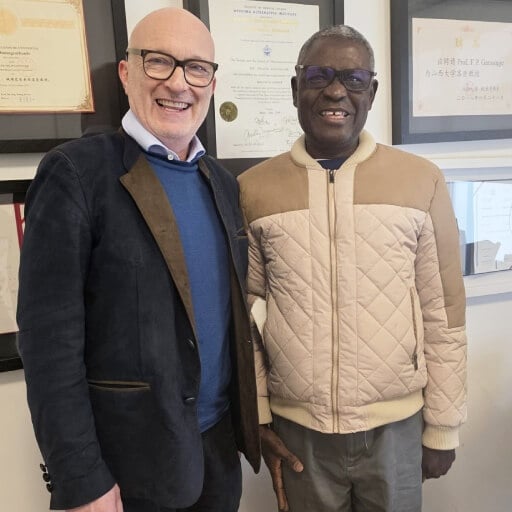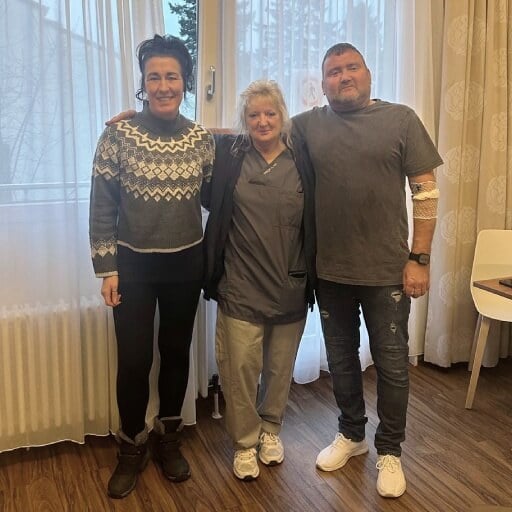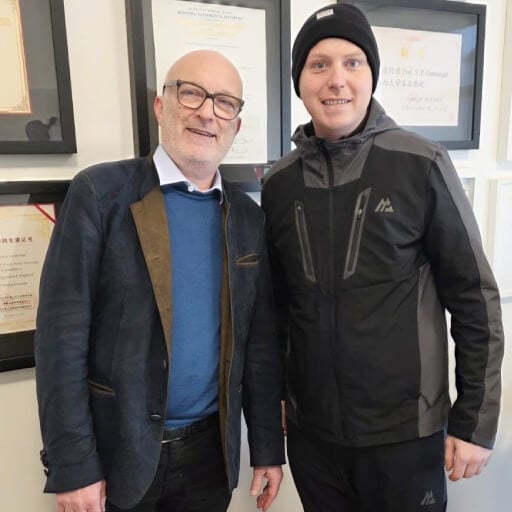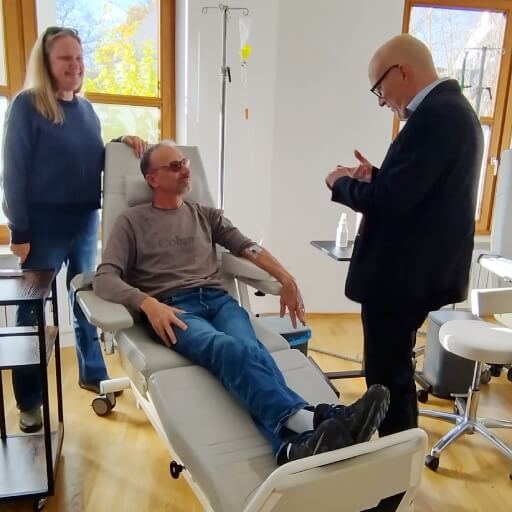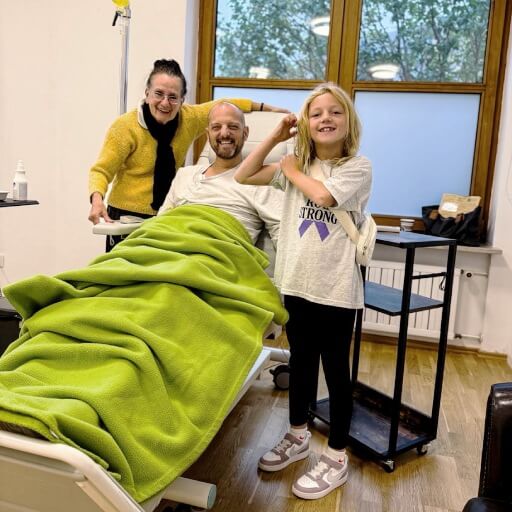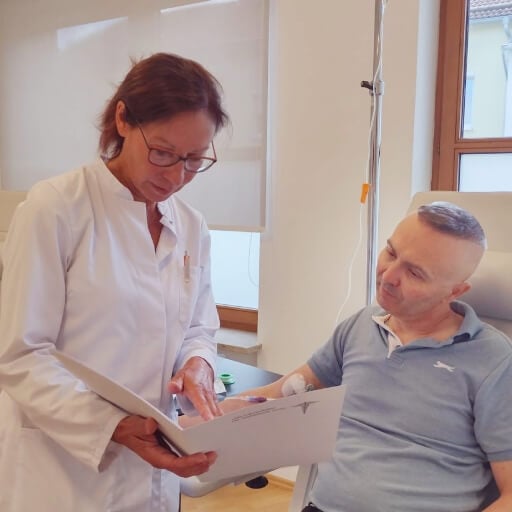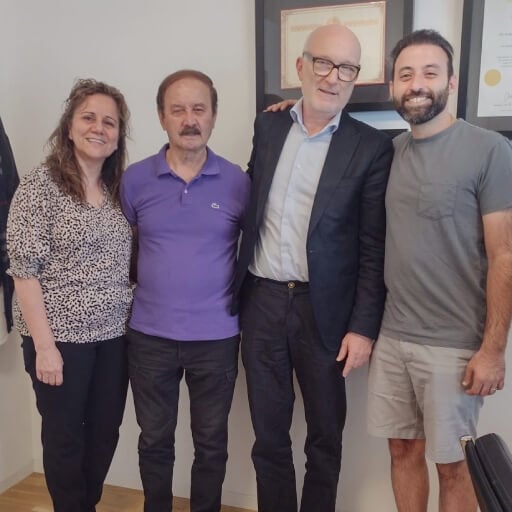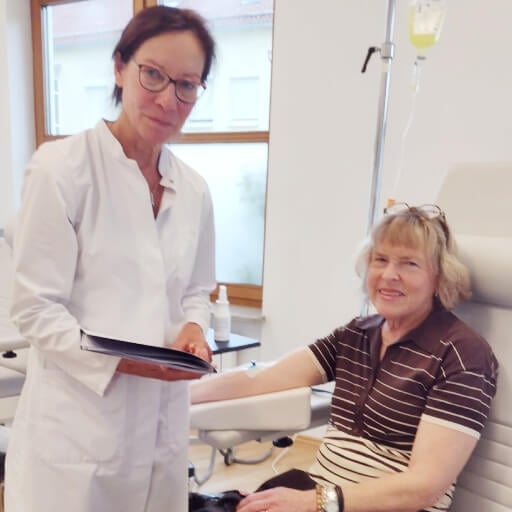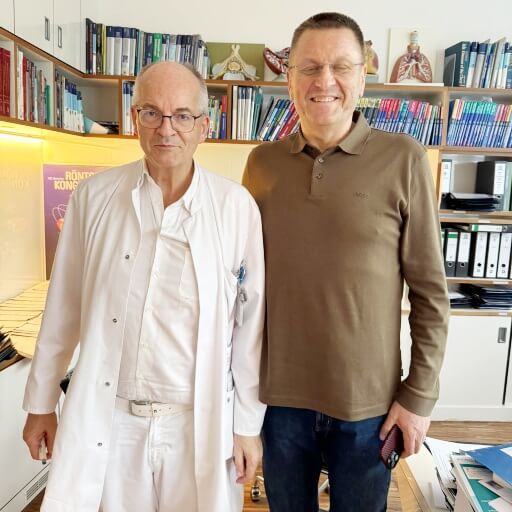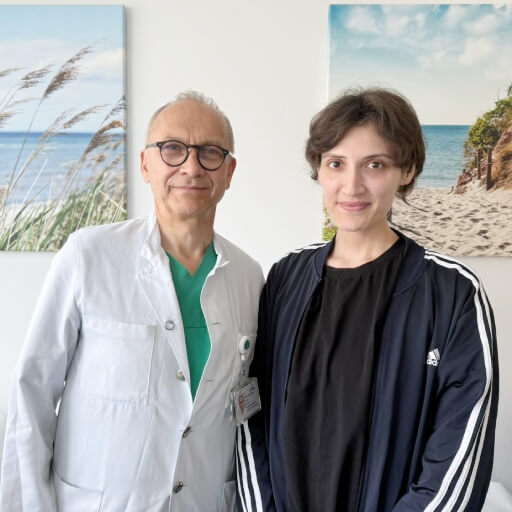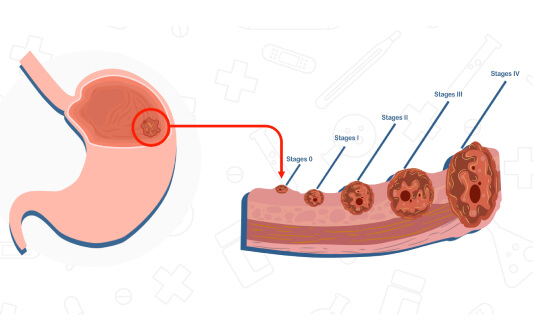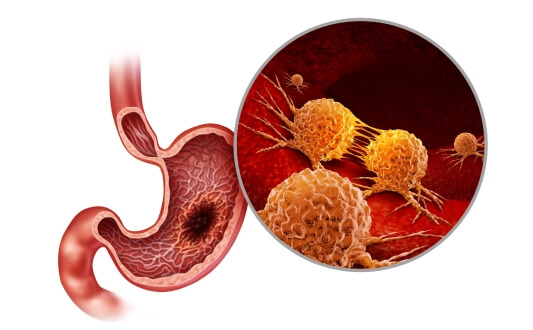Stomach cancer remains a serious global health concern, with over 1 million new cases diagnosed each year and approximately 770,000 deaths worldwide. While incidence rates have been declining in some regions due to better screening and dietary changes, late diagnosis and aggressive disease progression continue to make gastric cancer one of the deadliest forms of cancer.
In Germany, around 15,000 people are diagnosed with stomach cancer annually, and nearly 10,000 deaths are attributed to the disease. Although less common than other cancers, such as breast or colorectal cancer, gastric cancer in Germany still poses a significant challenge, especially due to its often silent course in early stages. The 5-year survival rate varies widely depending on the stage at diagnosis, averaging around 30%, highlighting the crucial role of gastroenterology in early detection and management.
Germany is regarded as one of the leading countries in cancer treatment. Patients benefit from access to cutting-edge technologies, advanced surgical techniques, and comprehensive multidisciplinary care. Stomach cancer treatment in Germany offers innovative approaches such as minimally invasive surgery, targeted therapies, immunotherapy, and specialized procedures like HIPEC and PIPAC, providing new hope for patients with complex or advanced cases.
What Is Stomach Cancer?
Stomach cancer, also known as gastric cancer, develops when malignant cells form in the lining of the stomach. It often grows slowly over many years and may go unnoticed in its early stages, which makes early detection challenging. According to the World Health Organization (WHO) [1], stomach cancer is among the top five most common cancers globally and remains one of the leading causes of cancer-related deaths. Advances in gastroenterology have significantly improved the diagnostic and therapeutic approaches for gastric cancer, enabling earlier detection and more personalized treatment strategies.
Adenocarcinoma, GIST, or Something Else? Understanding Stomach Cancer Types
There are several types of stomach cancer [2], each with its own characteristics, behavior, and therapy considerations:
- Adenocarcinoma is by far the most common type, accounting for over 90% of all stomach cancers. It begins in the mucus-producing glandular cells of the stomach lining. Adenocarcinomas can be classified into two main subtypes: the intestinal type, which is more likely to be associated with environmental and dietary factors, tends to grow more slowly and form gland-like structures; and the diffuse type, which is less common, more aggressive, and spreads more quickly. The diffuse type is not clearly linked to external risk factors and often occurs in younger patients.
- Gastrointestinal Stromal Tumor (GIST): A rare form of stomach cancer arising from the interstitial cells of Cajal, which are part of the autonomic nervous system of the gastrointestinal tract. GISTs can occur anywhere in the digestive tract, but the stomach is the most common site.
- Lymphoma: Cancers that originate in the immune system cells of the stomach wall. These are relatively rare and include types such as MALT (mucosa-associated lymphoid tissue) lymphoma. Gastric lymphomas are treated differently from adenocarcinomas and often respond well to chemotherapy and immunotherapy.
- Neuroendocrine Tumors (NETs): These tumors arise from hormone-producing cells in the stomach. They are uncommon and range from slow-growing (well-differentiated) to highly aggressive (poorly differentiated or neuroendocrine carcinoma).
How Far Has It Spread? Understanding Stomach Cancer Stages
Stomach cancer is typically classified into five stages, from 0 to IV:
- Stage 0 (Carcinoma in situ): Abnormal cells are found in the inner lining but haven't spread.
- Stage I: Cancer has spread slightly deeper into the stomach wall or nearby lymph nodes.
- Stage II-III: The tumor invades deeper layers of the stomach and more lymph nodes.
- Stage IV (Advanced or Metastatic): Cancer has spread to distant organs such as the liver, lungs, or peritoneum.
Staging and type are crucial for determining therapy strategies and prognosis. The TNM system, developed by the Union for International Cancer Control (UICC), is the most widely used method for staging gastric cancer and considers the tumor size (T), lymph node involvement (N), and metastasis (M).
Standard Treatment Options for Gastric Cancer in Germany
Treatment for stomach cancer in Germany follows international clinical guidelines but is often enhanced by the country’s strong emphasis on precision, technology, and multidisciplinary care. The exact therapy plan depends on the stage of the disease, the tumor’s biology, and the patient’s overall condition – but for most patients, surgery remains the central component of care.
When Surgery Is the Key: Removing the Stomach Tumor with Precision
Surgical treatment is typically recommended when the cancer is localized and potentially curable. Depending on the tumor’s size and location, surgeons may perform a subtotal (partial) gastrectomy, where only part of the stomach is removed, or a total gastrectomy, where the entire stomach is taken out.
In many German cancer centers, these procedures are done using minimally invasive or robotic-assisted techniques, which allow for greater precision, faster recovery, and fewer complications. Surgery for stomach cancer treatment in Germany is often combined with lymph node dissection to improve staging accuracy and reduce the risk of recurrence.
Before and After Stomach Cancer Surgery: Why Chemotherapy Matters
In more advanced stages, or when there’s a high risk of microscopic disease remaining after surgery for gastric cancer, chemotherapy plays a critical role. Perioperative (before and after surgery) chemotherapy is commonly used for stomach cancer treatment in Germany, based on evidence that it can shrink tumors, reduce recurrence, and improve long-term survival.
Targeted Energy, Targeted Results: The Power of Radiotherapy for Stomach Cancer
Radiotherapy is less commonly used for the treatment of stomach cancer in Germany than for some other tumors, but can be part of the treatment plan in certain situations, particularly when the tumor cannot be removed completely, or to relieve symptoms such as bleeding or pain. When radiotherapy is indicated, German clinics use modern image-guided systems that minimize damage to surrounding healthy tissue.
Overall, stomach cancer treatment in Germany is carefully tailored to the individual. Patients are typically managed by a multidisciplinary tumor board, ensuring that surgical, oncological, and supportive perspectives are all considered before any therapy begins.
Advanced Therapies for Stomach Cancer in German Clinics
While standard treatments remain essential in managing gastric cancer, many patients benefit from advanced, highly specialized therapies available in leading German clinics. These innovative methods – ranging from personalized immunotherapy to modern regional treatments – are designed to offer better outcomes, fewer side effects, and new hope for patients with complex or advanced-stage disease.
Immunotherapy for Gastric Cancer (Dendritic Cells)
Dendritic cell therapy is one of the most promising forms of personalized immunotherapy [3], and German cancer centers are among the few in the world where this therapy is available in clinical practice. Unlike conventional treatments that attack both healthy and cancerous cells, dendritic cell therapy works by training the patient’s immune system to recognize and eliminate tumor cells.
The foundation for this breakthrough approach was laid by Nobel Prize-winning research in 2011 [4], which highlighted the central role of dendritic cells in triggering immune responses. Today, German specialists use this knowledge to create individualized vaccines from each patient’s immune cells. These vaccines help activate T-cells to target the cancer specifically, without the side effects of chemotherapy.
This therapy is especially valuable for patients with advanced or recurrent gastric cancer, offering a gentle yet powerful way to slow disease progression, improve immune resilience, and enhance quality of life. Its safety profile makes it suitable even for those with poor tolerance to standard treatments, and its results speak for themselves.
Targeted Therapy and Personalized Medicine for Gastric Cancer
Modern gastric cancer treatment in Germany is no longer one-size-fits-all. Thanks to advances in molecular diagnostics, therapy can now be matched to the unique genetic profile of each tumor. This is the essence of targeted therapy – a method that attacks cancer cells based on specific mutations or overactive pathways, while sparing healthy tissues.
Depending on the molecular characteristics of the tumor, patients may benefit from therapies that inhibit abnormal signaling pathways, block tumor blood supply, or reactivate immune responses. German clinics are equipped with the latest tools for tumor profiling and genetic testing, ensuring that patients receive highly personalized, evidence-based treatment plans. This approach leads to better outcomes, fewer side effects, and greater long-term control of the disease.
HIPEC (Hyperthermic Intraperitoneal Chemotherapy) for Gastric Cancer
In modern gastric cancer treatment in Germany, HIPEC is a game-changing surgical technique used to treat peritoneal metastases in gastric cancer, a condition once considered nearly untreatable [5]. In Germany, HIPEC is performed by expert surgical teams with extensive experience in complex abdominal oncology.
As part of advanced gastric cancer treatment in Germany, this procedure starts with the complete surgical removal of visible tumor deposits (cytoreduction). It is then followed by the infusion of heated chemotherapy directly into the abdominal cavity. The elevated temperature enhances drug penetration and increases its effectiveness against cancer cells, while limiting toxicity to the rest of the body.
For eligible patients, HIPEC offers a real chance at long-term remission and is often the only option that can meaningfully extend survival. German HIPEC centers follow strict international protocols and achieve excellent outcomes, even in cases with advanced peritoneal involvement.
PIPAC (Pressurized Intraperitoneal Aerosol Chemotherapy) for Stomach Cancer
PIPAC is a revolutionary, minimally invasive technique for treating peritoneal metastases in gastric cancer [6]. Developed and refined in Germany, this approach uses laparoscopy to deliver chemotherapy as a fine aerosol under pressure, allowing drugs to reach microscopic tumor deposits that standard treatments often miss.
The benefits of PIPAC are remarkable: improved drug distribution, better tissue penetration, minimal systemic toxicity, and the ability to repeat the procedure multiple times. For many patients who are no longer candidates for surgery or systemic chemotherapy, PIPAC offers new hope and real control over disease progression.
German oncology centers that offer PIPAC combine technical expertise with cutting-edge infrastructure, making this one of the safest and most effective options for advanced gastric cancer confined to the peritoneum.
TACE (Transarterial Chemoembolization) for Stomach Cancer
When gastric cancer spreads to the liver, therapy becomes more challenging, but not hopeless. TACE is a highly specialized technique that delivers chemotherapy directly into the liver tumor’s blood supply, followed by embolization to block the artery and trap the drug inside the tumor.
This approach allows for maximum concentration of chemotherapy at the tumor site while minimizing side effects. In German oncology clinics, TACE is performed by skilled interventional radiologists using advanced imaging to ensure pinpoint accuracy and patient safety.
A recent study published in Frontiers in Oncology [7] has confirmed the high efficacy of TACE in treating advanced gastric cancer. The data clearly demonstrate that TACE not only improves local tumor control but also contributes to prolonged survival in selected patients – a result that aligns with real-world clinical outcomes.
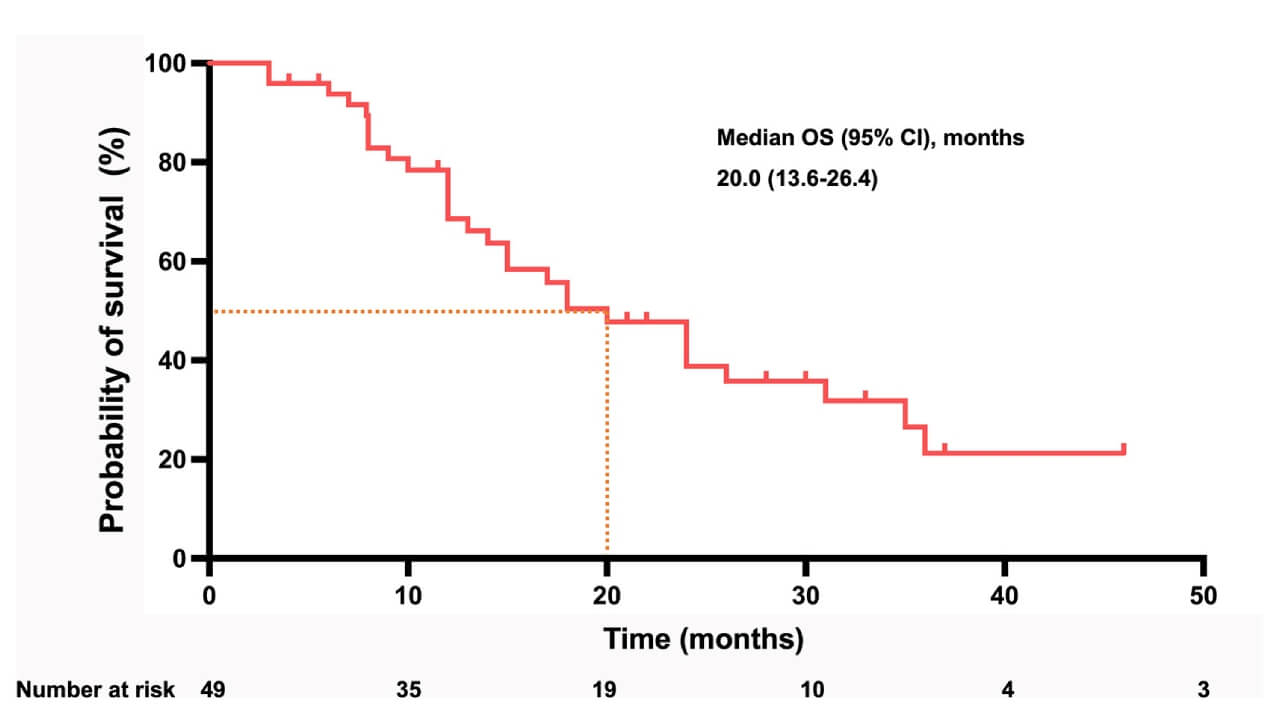
| Tumor response | All patients (n = 49, %) | |||
|---|---|---|---|---|
| Complete response (CR) | 2 | 4.08% | ||
| Partial response (PR) | 28 | 57.14% | ||
| Stable disease (SD) | 18 | 36.73% | ||
| Progressive disease (PD) | 1 | 2.04% | ||
| Objective control rate (CR + PR) | 30 | 61.22% | ||
| Disease control rate (CP + PR + CD) | 48 | 97.96% | ||
*Transcatheter arterial chemoembolization for unresectable advanced gastric or gastroesophageal junction cancer [7]
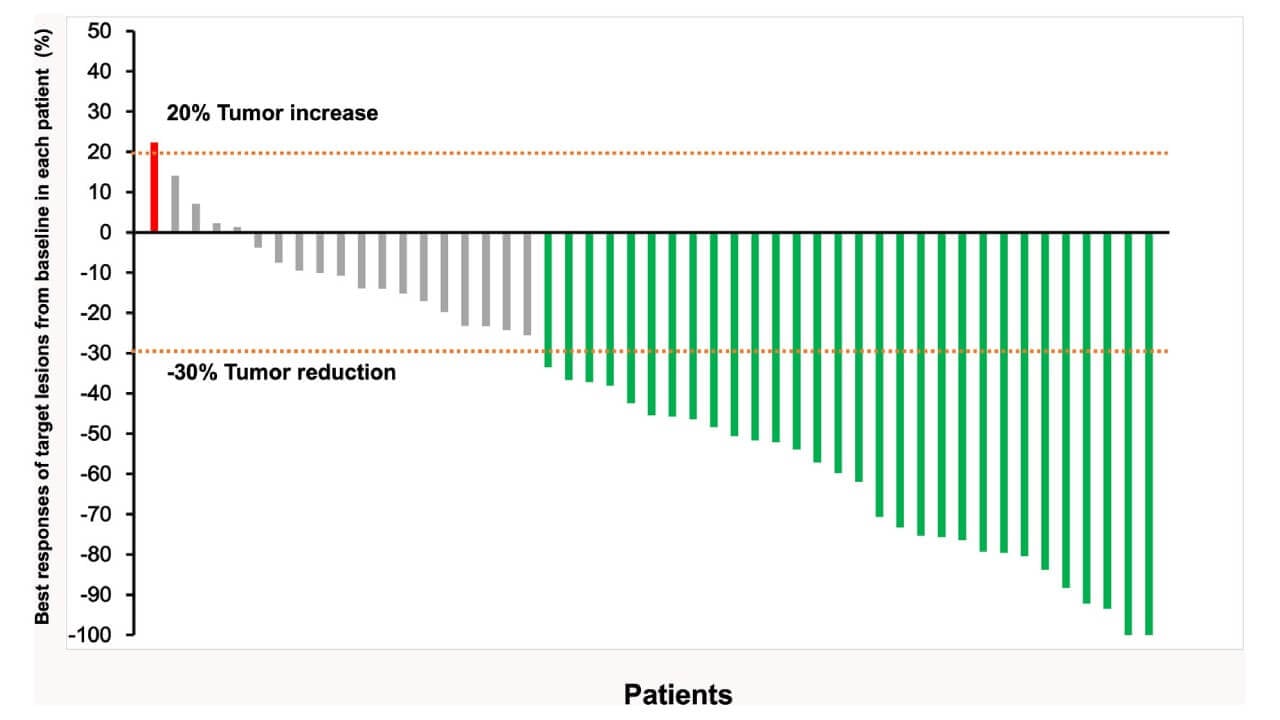
This advanced treatment method is available in specialized clinics in Germany, offering patients access to a scientifically validated, targeted approach that enhances therapeutic effectiveness while minimizing systemic toxicity.
Regional Chemotherapy in Gastric Cancer
Regional chemotherapy in Germany employs advanced perfusion techniques that isolate the abdomen and deliver chemotherapy at concentrations unattainable through systemic approach. Hypoxic abdominal stop-flow perfusion temporarily halts circulation to trap drugs within tumor tissue. Upper abdominal perfusion targets the gastric region specifically. Intraarterial infusion floods tumor vessels directly.
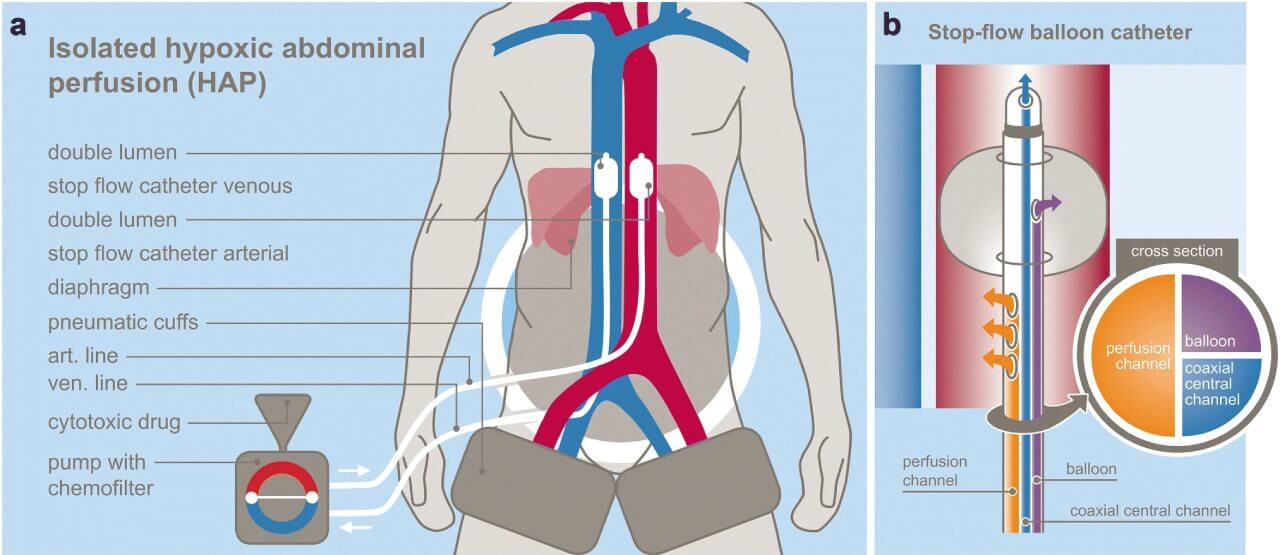
The clinical impact is substantial. Regional chemotherapy for stomach cancer achieved median overall survival of 17.4 months in patients with peritoneal metastases who had exhausted all systemic options – extending to 23.5 months in those who had undergone prior resection [8]. Across 114 treatment cycles using different medications, not a single Grade 3 or 4 toxicity event occurred [8].
After that, blood filtration eliminates residual chemotherapy within 45 minutes post-procedure, allowing patients to resume normal activity almost immediately. For peritoneal metastatic gastric cancer – historically a palliative diagnosis with limited options – regional perfusion offers disease control where conventional therapy fails.
Electrochemotherapy for Stomach Cancer
Electrochemotherapy against gastric cancer uses electrical pulses to disrupt the cellular barrier separating chemotherapy from its target. Brief, controlled currents perforate tumor membranes with nanoscale openings, permitting drug molecules to surge inside at unprecedented concentrations.
Specialized electrodes encircle the tumor at precise intervals. Generators synchronized to cardiac rhythm deliver pulses that patients – under anesthesia – don't perceive consciously, though muscle contractions lift them briefly from the operating table. The physics is straightforward: electroporation creates pathways where none existed. The chemistry follows: drugs penetrate 70-80% more efficiently than passive diffusion allows.
German specialists pioneered combining electro-chemotherapy with regional perfusion protocols for gastric tumors resistant to standard approaches. Treatment involves two sessions typically, though complex cases may require three. Cost of electrochemotherapy varies based on tumor extent and protocol complexity; in general, electrochemotherapy cost varies between 7,500-12,000€.
Professor Karl Reinhard Aigner developed much of this methodology through 20,000+ procedures. His interview details the technical nuances and clinical reasoning behind these innovations.
Medical Procedures Costs for Stomach Cancer
| Treatment Method | GERMANY* | Great Britain | USA |
|---|---|---|---|
| Standard Treatment | €80,000 - €150,000 full course | €90,000 - €165,000 full course | €100,000 - €180,000 full course |
| Innovative Methods | €25,000 - €60,000 full course | €70,000 - €120,000 full course | €100,000 - €150,000 full course |
Based on Booking Health clinical data, final treatment costs may vary depending on individual medical needs, length of hospital stay, level of medical supervision, and additional services such as diagnostics, travel support, and accommodation.
A Journey of Hope: Amel’s Experience of Stomach Cancer Treatment with Booking Health
When Amel Khedraoui was diagnosed with stomach cancer, the uncertainty of what lay ahead was overwhelming. Searching for effective and timely treatment options outside her home country added even more complexity to an already difficult situation. After extensive research and many unanswered questions, she turned to Booking Health – a decision that became a turning point in her journey.
With the help of Booking Health, Amel was able to access advanced treatment for stomach cancer in Germany, specifically at the University Hospital Frankfurt am Main. "Booking Health helped us to organize the treatment program at the University Hospital Frankfurt am Main, Germany," she recalls. The logistics were handled quickly and professionally, giving her and her family the peace of mind they desperately needed.
Amel expresses heartfelt thanks to the entire Booking Health team, and in particular to Brother Mohammed and Sister Nour, whose dedication and prompt assistance with visa procedures made the process seamless. Their support allowed her to focus fully on her health, knowing that all the critical organizational details were in trusted hands.
Her story reflects the reality faced by many patients with stomach cancer in Germany – the need not only for advanced medical care, but also for a reliable coordination partner. Thanks to Booking Health, Amel was able to access the right treatment at the right time, without being overwhelmed by the international bureaucracy that often accompanies medical travel.
Where to Undergo Stomach Cancer Treatment in Germany?
There are dozens of oncological centers in Germany where malignant tumors of the stomach and other organs of the digestive system are treated. Such German hospitals are staffed by the country's leading specialists, who have wide-ranging skills in diagnosing and treating oncological diseases.
In clinics for stomach cancer in Germany, all necessary conditions are created for complex diagnostics and the subsequent treatment. Specialists select the optimal medical tactics taking into account the age of the patient and their anamnesis. Oncologists pay special attention to the search for metastases throughout the body, as it is important to destroy all tumor cells, including those in distant lymph nodes and internal organs.
Here's where you can undergo stomach cancer treatment, including stomach cancer alternative treatments in Germany:
- Helios Hospital Berlin-Buch
- University Hospital Duesseldorf
- University Hospital of Ludwig Maximilian University of Munich
- University Hospital Ulm
Best stomach cancer hospitals in Germany
| Hospital | Key Advantages | Specialized Procedures | Certifications |
|---|---|---|---|
| Helios Hospital Berlin-Buch | Germany's largest sarcoma center; 97% patient recommendation rate; intraoperative radiation therapy during surgery | HIPEC, PIPAC, IOELT (intraoperative electron therapy), radiofrequency ablation (RFA), hyperthermic isolated chemoperfusion | Triple certification by German Cancer Society (DKG); Oncology Center status |
| University Hospital Duesseldorf | Gastroenterology ranked in world's top 17 by Newsweek; molecular diagnostics for targeted therapy selection; advanced imaging for microscopic metastasis detection | TrueBeam linear accelerators, brachytherapy, radionuclide therapy, PET-CT, SPECT-CT, sentinel lymph node mapping | University Tumor Center (UTZ); German Cancer Aid funding; member of S3 guidelines commission |
| University Hospital Munich (LMU) | Newsweek-recognized gastroenterology excellence; in-clinic pharmacy for individualized drug preparation; hyperthermia-enhanced chemotherapy | Endoscopic mucosectomy, endoscopic submucosal dissection, hyperthermia therapy, argon plasma coagulation | Certified by German Cancer Society (DKG); Comprehensive Cancer Center Munich (CCC) designation |
| University Hospital Ulm | "Interdisciplinary Oncology Center of Excellence" by German Cancer Aid (1 of 15 nationwide); ISO 9001:2008 certified clinical trials; part of CCC SouthWest consortium | Perioperative chemotherapy protocols, interdisciplinary visceral oncology consultation (ViOn), TELBER telephone consultation service | DGHO-certified clinical trial center; German Cancer Aid funding; ISO 9001:2008 quality certification |
Helios Hospital Berlin-Buch
Germany's largest sarcoma center operates here. Triple certification from the German Cancer Society validates expertise treating over 200,000 patients yearly with precision earning 97% recommendations. HIPEC and PIPAC target peritoneal metastases when others declare cases hopeless – surgical teams master what most hospitals only reference in journals.
For instance, intraoperative radiation therapy delivers doses during surgery itself, eliminating weeks of post-operative treatment. Radiofrequency ablation destroys secondary liver lesions without incisions – another advantage for gastric cancer patients.
The medical team contributes to national guidelines while maintaining hands-on experience that transforms complex cases. Berlin's green campus combines maximum-care infrastructure with environments designed for healing, not just treatment.
University Hospital Duesseldorf
Newsweek ranked this gastroenterology department among the world's top 1.
University Tumor Center offers collaboration where oncologists, surgeons, and molecular experts discuss every case. PET-CT and SPECT-CT detect microscopic metastases standard imaging misses. TrueBeam accelerators deliver radiation with millimeter precision – destroying tumors and sparing healthy tissue.
Teaching hospital status with Heinrich Heine University ensures treatments evolve with discoveries, benefiting patients through continuous knowledge exchange. The team helped write S3 guidelines defining German stomach cancer care, shaping protocols through research rather than just following them.
University Hospital of Ludwig Maximilian University of Munich
Comprehensive Cancer Center Munich that works here provides care across 44 medical specialties. It creates treatment plans no single department achieves alone. Early-stage tumors? Endoscopic mucosectomy and submucosal dissection remove them – preserving stomach function and accelerating recovery.
Advanced disease is an indication for hyperthermia combined with chemotherapy (HIPEC) – enhancing drug penetration where standard approaches fail. Doctors use individualized medications based on molecular profiles, adjusting dosing to maximize effectiveness and toxicity minimizing.
German Cancer Society certification validates quality maintained across half a million patient visits yearly. Focus magazine consistently ranks this Munich institution among Germany's premier hospitals.
University Hospital Ulm
German Cancer Aid designated Ulm's Comprehensive Cancer Center an "Interdisciplinary Oncology Center of Excellence" – one of only 15 nationwide earning this distinction. ISO 9001 certification and DGHO accreditation guarantee research quality advancing tomorrow's therapies.
What makes Ulm exceptional? The interdisciplinary visceral oncology consultation brings GI oncologists and surgeons together for joint evaluations, eliminating delays from department handoffs. Operating within the CCC SouthWest consortium connects Ulm to multiple university hospitals, creating knowledge networks benefiting every patient. Four decades of experience refined perioperative chemotherapy protocols – shaping guidelines rather than only following them.
Cost of Treatment for Stomach Cancer
Of course, many people are wondering about how much gastric cancer treatment in Germany costs, as many international patients seek treatment for a stomach tumor Germany offers. The answer is that it is impossible to predict this because the cost of treatment is determined on an individual basis and can be adjusted in the process. However, one can say with certainty that the prices for cancer treatment don’t differ much in different countries, but cancer of the stomach treatment in Germany gives you a quality guarantee. This is why gastric cancer treatment in Germany is definitely worthwhile.
On average, the treatment of stomach cancer cost in Germany is as follows:
- The cost of treatment with partial resection with anastomosis starts at 23,700 EUR
- The cost of treatment with complete resection and subsequent plasty of the intestinal tissue starts at 24,020 EUR
- The cost of treatment with multimodality treatment with cytoreductive surgery and HIPEC starts at 51,800 EUR
Fighting Cancer Together: Treatment Journeys with Booking Health
A Medical Journey: Every Step of the Way With Booking Health
Finding the best treatment strategy for your clinical situation is a challenging task. Being already exhausted from multiple treatment sessions, having consulted numerous specialists, and having tried various therapeutic interventions, you may be lost in all the information given by the doctors. In such a situation, it is easy to choose a first-hand option or to follow standardized therapeutic protocols with a long list of adverse effects instead of selecting highly specialized innovative treatment options.
To make an informed choice and get a personalized cancer management plan, which will be tailored to your specific clinical situation, consult medical experts at Booking Health. Being at the forefront of offering the latest medical innovations for already 12 years, Booking Health possesses solid expertise in creating complex cancer management programs in each individual case. As a reputable company, Booking Health offers personalized stomach cancer treatment plans with direct clinic booking and full support at every stage, from organizational processes to assistance during treatment. We provide:
- Assessment and analysis of medical reports
- Development of the medical care program
- Selection of a suitable treatment location
- Preparation of medical documents and forwarding to a suitable clinic
- Preparatory consultations with clinicians for the development of medical care programs
- Expert advice during the hospital stay
- Follow-up care after the patient returns to their native country after completing the medical care program
- Taking care of formalities as part of the preparation for the medical care program
- Coordination and organization of the patient's stay in a foreign country
- Assistance with visas and tickets
- A personal coordinator and interpreter with 24/7 support
- Transparent budgeting with no hidden costs
Health is an invaluable aspect of our lives. Delegating management of something so fragile yet precious should be done only to experts with proven experience and a reputation. Booking Health is a trustworthy partner who assists you on the way of pursuing stronger health and a better quality of life. Contact our medical consultant to learn more about the possibilities of personalized treatment with innovative methods for stomach cancer with leading specialists in this field.
Frequently Asked Questions of Our Patients About Stomach Cancer
Send request for treatmentYes, stomach cancer can be curable, especially when diagnosed early. German hospitals offer advanced cancer treatment options such as surgery, chemotherapy, HIPEC, and immunotherapy for gastric cancer, ensuring high-quality care and better outcomes.
The cost of stomach cancer treatment in Germany depends on the stage and therapies used. Prices range from €15,000 to €50,000, depending on the oncology center, surgery, chemotherapy, HIPEC, or PIPAC. Booking Health provides transparent pricing and full support for international patients.
Many top German hospitals specialize in gastric cancer treatment. Oncology and gastroenterology centers in cities like Berlin, Munich, and Frankfurt offer advanced surgery, HIPEC, PIPAC, and personalized therapy options for stomach cancer patients.
In Germany, stage 4 gastric cancer treatment may include chemotherapy, immunotherapy (dendritic cells), PIPAC, HIPEC, or TACE (chemoembolization). These options aim to control cancer progression and improve the patient’s quality of life.
Yes, stomach cancer treatment in Germany is known for providing individualized stomach cancer treatment plans. Based on tumor profiling, patients receive the most effective therapies—including targeted therapy, surgery, HIPEC, or immunotherapy—tailored to their specific diagnosis.
Absolutely. International patients are welcome in German hospitals. Booking Health helps organize every step, from medical document translation to appointments, visa support, and full coordination of cancer treatment in Germany.
The survival rate for stomach cancer in Germany depends on the stage and therapy approach. With access to high-quality care, including surgery, HIPEC, and targeted therapies, 5-year survival can be significantly higher than the global average.
There are typically no early symptoms. Later, patients may complain of abdominal discomfort, weight loss, loss of appetite, nausea – all are non-specific manifestations that can be referred to other, benign GI conditions.
Standard treatment costs €80,000-€150,000 (for the full course); innovative ones – €25,000-€60,000. The final cost depends on the chosen methods and hospital type. You can contact Booking Health team to get a detailed calculation for your case.
GB prices are typically higher than in Europe. The country charges €90,000-€165,000 for standard treatment and €70,000-€120,000 for innovative.
The USA costs are about €100,000-€180,000 for standard treatment and €100,000-€150,000 – for innovative methods. For an international patient, German clinics provide equivalent treatment quality at significantly lower costs.
For stomach cancer especially in advanced stages treatment in Germany often combines standard therapies with innovative options (HIPEC, PIPAC, dendritic cell therapy, targeted therapy and TACE) – each plan is tailored to tumor characteristics and patient condition.
The best hospitals in Germany for stomach cancer are specialized centers with experience in complex cases because they offer multidisciplinary care (ensuring treatments are safe and individualized).
Choose treatment abroad and you will for sure get the best results!
Authors:
This article was edited by medical experts, board-certified doctors Dr. Nadezhda Ivanisova, and Dr. Bohdan Mykhalniuk. For the treatment of the conditions referred to in the article, you must consult a doctor; the information in the article is not intended for self-medication!
Our editorial policy, which details our commitment to accuracy and transparency, is available here. Click this link to review our policies.
Sources:
[1] WHO. The current and future incidence and mortality of gastric cancer in 185 countries, 2020–40: a population-based modelling study. https://www.iarc.who.int/news-events/the-current-and-future-incidence-and-mortality-of-gastric-cancer-in-185-countries-2020-40-a-population-based-modelling-study
[2] American Cancer Society. What Is Stomach Cancer? https://www.cancer.org/cancer/types/stomach-cancer/about/what-is-stomach-cancer.html
[3] Nature. Durable complete response to neoantigen-loaded dendritic-cell vaccine following anti-PD-1 therapy in metastatic gastric cancer. https://www.nature.com/articles/s41698-022-00279-3
[4] PubMed. The 2011 Nobel Prize in physiology or medicine. https://pubmed.ncbi.nlm.nih.gov/22053831/
[5] NIH, National Library of Medicine. HIPEC for metastatic gastric cancer: Moving the needle towards 3-year survival. https://pubmed.ncbi.nlm.nih.gov/39489042/
[6] NIH, National Library of Medicine. Preventive Use of PIPAC in Locally Advanced Gastric Cancer. https://clinicaltrials.gov/study/NCT06784765
[7] Frontiers. Transcatheter arterial chemoembolization combined with apatinib and camrelizumab for unresectable advanced gastric or gastroesophageal junction cancer: a single-arm, single-center, retrospective study. https://www.frontiersin.org/journals/oncology/articles/10.3389/fonc.2023.1143578/full
[8] Aigner K, Vashist YK, Selak E, Gailhofer S, Aigner KR. Efficacy of Regional Chemotherapy Approach in Peritoneal Metastatic Gastric Cancer. J Clin Med. 2021;10(23):5322. https://doi.org/10.3390/jcm10225322 [DOI]
Read:
Stage 4 Stomach Cancer Treatment
Article menu:
- What Is Stomach Cancer?
- Standard Treatment Options for Gastric Cancer in Germany
- Advanced Therapies for Stomach Cancer in German Clinics
- Medical Procedures Costs for Stomach Cancer
- A Journey of Hope: Amel’s Experience of Stomach Cancer Treatment with Booking Health
- Where to Undergo Stomach Cancer Treatment in Germany?
- Cost of Treatment for Stomach Cancer
- A Medical Journey: Every Step of the Way With Booking Health
- Frequently Asked Questions of Our Patients About Stomach Cancer
Don't know where to start?
Contact Booking Health